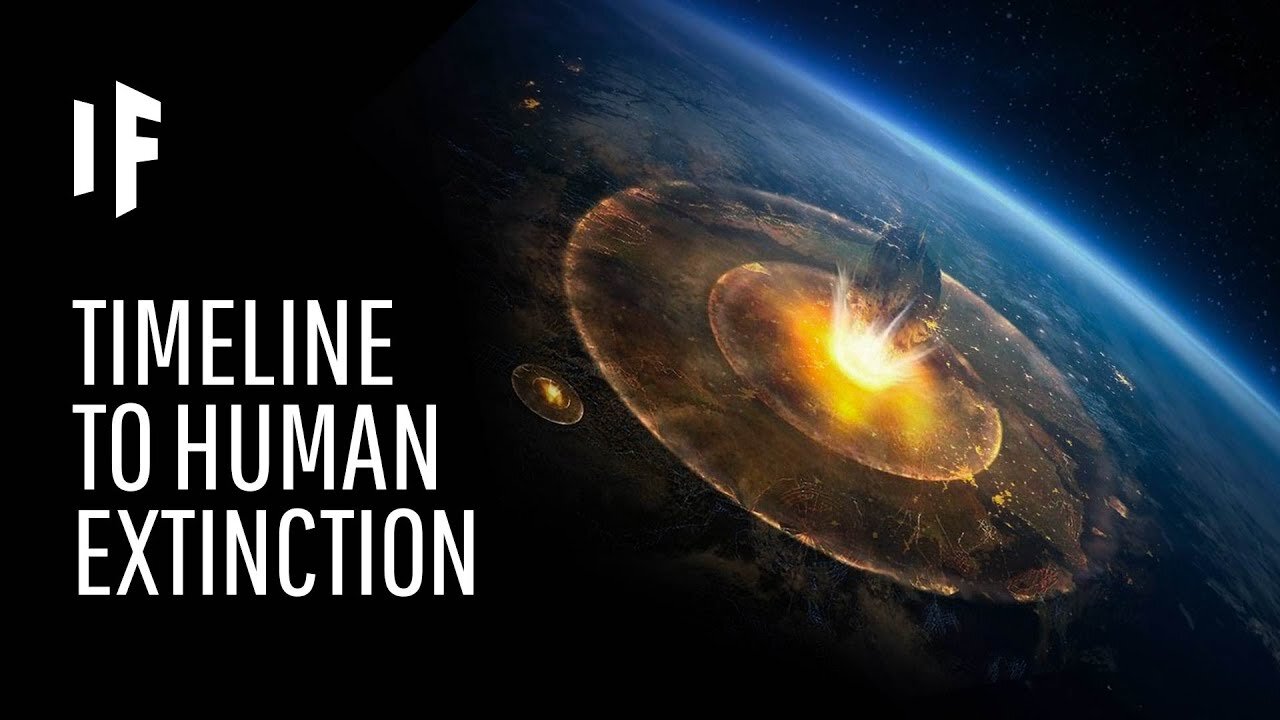Premium Only Content

What If We Knew the Time We Go Extinct?
If humanity were to know the exact time when we would go extinct, it would have profound and complex effects on society, psychology, and the way we approach our future. Here are some of the potential consequences:
1. **Changed Priorities**: Knowing the exact extinction date would likely shift societal priorities dramatically. People and governments might focus on short-term goals and immediate gratification, as there would be little incentive to plan for a distant future. This could impact long-term projects, environmental conservation efforts, and investments in education and research.
2. **Existential Crisis**: On an individual level, many people would likely grapple with existential questions about the meaning of life, the value of their actions, and how to spend their remaining time. This could lead to increased feelings of anxiety, depression, or nihilism.
3. **Economic Implications**: The economy would be heavily influenced by the knowledge of our extinction date. Investment strategies, retirement planning, and financial markets could become highly unstable. Some industries might decline as they are deemed irrelevant to our limited future.
4. **Environmental Stewardship**: The urgency of environmental conservation efforts might increase, as people realize that the consequences of their actions will be felt sooner rather than later. However, there's also a risk that some might disregard environmental concerns if they believe that Earth's fate is sealed.
5. **Social Cohesion**: The knowledge of impending extinction could bring people together in an effort to make the most of the time they have left. Cooperation and a sense of shared humanity might increase, potentially leading to global initiatives for peace and cooperation.
6. **Scientific and Technological Exploration**: Some individuals and organizations might focus their efforts on understanding the universe or developing advanced technologies, hoping to find a way to extend humanity's existence or explore the cosmos before the deadline.
7. **Religious and Philosophical Responses**: Different religious and philosophical groups might interpret this knowledge in various ways. Some might see it as a divine revelation or a test of faith, while others might delve deeper into questions of human existence and morality.
8. **Ethical Dilemmas: Questions about the ethics of procreation and the responsibility to future generations would become more acute. Some may choose not to have children, while others might prioritize the well-being and upbringing of the next generation.
9. **Psychological Impact**: The psychological impact of knowing our extinction date could vary widely. Some might experience a sense of liberation, feeling free from the constraints of the unknown future, while others could experience profound despair and hopelessness.
10. **Cultural Expression**: Art, literature, and other forms of cultural expression would likely evolve in response to this knowledge. Themes of mortality, legacy, and the human condition would become even more prominent in creative works.
11. **Innovation and Invention**: Some individuals and groups might pursue ambitious scientific projects and inventions in a last-ditch effort to change our fate or leave a lasting legacy.
12. **International Relations: Diplomacy and geopolitics could shift as nations reevaluate their interests and priorities in light of the impending extinction. Collaborative efforts for peace and stability might increase, but there could also be conflicts over dwindling resources or disputes over how to allocate them.
It's important to note that the actual consequences would depend on the specifics of how this knowledge is obtained, how credible it is, and how individuals and societies choose to respond. Additionally, the psychological and emotional impact on people would vary widely, and not everyone would react in the same way. Such a scenario would present unprecedented ethical, psychological, and societal challenges that would test our resilience and capacity for adaptation.
-
 2:23:48
2:23:48
FreshandFit
4 hours agoShould Average Men Pay For Box?
39.4K14 -
 7:29:29
7:29:29
SpartakusLIVE
8 hours agoThe $1,000 Spartakus Gauntlet || Huskerrs and Twitty
101K1 -
 LIVE
LIVE
RalliedLIVE
8 hours ago $14.15 earnedHIGH OCTANE WARZONE SOLOS ALL DAY
2,221 watching -
 2:49:43
2:49:43
TimcastIRL
7 hours agoTrump Just ACCUSED Obama Of TREASON, Calls For CRIMINAL Charges | Timcast IRL
211K67 -
 10:19
10:19
MattMorseTV
12 hours ago $6.23 earnedTrump just went SCORCHED EARTH.
37.5K25 -
 2:37:18
2:37:18
Barry Cunningham
7 hours agoPRESIDENT TRUMP UNLEASHES HIS WRATH! NOW IT'S DEFINITELY GAME ON! HUGE TRADE WIN!
84.7K52 -
 1:27:56
1:27:56
Glenn Greenwald
9 hours agoSemafor Editor Ben Smith on Epstein Saga; How do MAGA Supporters Really Feel About Trump's Foreign Policy? Eddington Movie Review: Reflections on 2020 | SYSTEM UPDATE #490
152K70 -
 2:13:20
2:13:20
megimu32
6 hours agoOTS: Infomercial Insanity | 80s-00s Gadgets That Sold Big (and Made Us Buy)
35.8K7 -
 4:35:12
4:35:12
Amish Zaku
7 hours agoA Celebration of Ozzy Osbourne's Life, Music, and Spirit
31.1K8 -
 48:41
48:41
The Mel K Show
8 hours agoMel K & Aaron Day | Wake up! Walking Blindly into Totalitarian Technocracy | 7-22-25
54.9K18